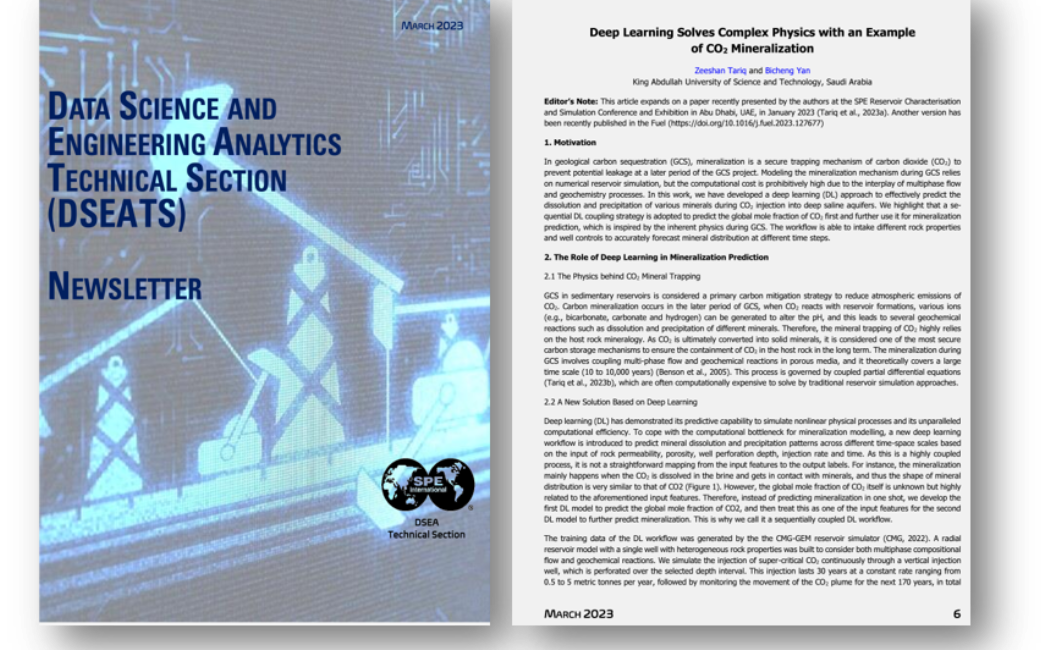
02 March, 2023
Congratulation, on March 2023 the SPE Data Science and Engineering Analytics Technical Section (DSEATS) reports the recent deep learning work, "Deep Learning Solves Complex Physics with an Example of CO2 Mineralization" by Dr. Zeeshan Tariq and Prof. Yan.
Brief of the work: In geological carbon sequestration (GCS), mineralization is a secure trapping mechanism of carbon dioxide (CO2) to prevent potential leakage at a later period of the GCS project. Modeling the mineralization mechanism during GCS relies on numerical reservoir simulation, but the computational cost is prohibitively high due to the interplay of multiphase flow and geochemistry processes. In this work, we have developed a deep learning (DL) approach to effectively predict the dissolution and precipitation of various minerals during CO2 injection into deep saline aquifers. We highlight that a sequential DL coupling strategy is adopted to predict the global mole fraction of CO2 first and further use it for mineralization prediction, which is inspired by the inherent physics during GCS. The workflow is able to intake different rock properties and well controls to accurately forecast mineral distribution at different time steps.
About SPE DSEATS: The SPE DSEA technical section is an international technical platform and serves as knowledge sharing and learning forum for all SPE members, from varied disciplines, interested in value creation from data and information leveraging Computing, Data, and Predictive Analytics sciences. The SPE DSEATS is intended to accelerate and enhance the digital asset life cycle management, given the current business dynamics and enable the future strategic energy transformation aspirations.